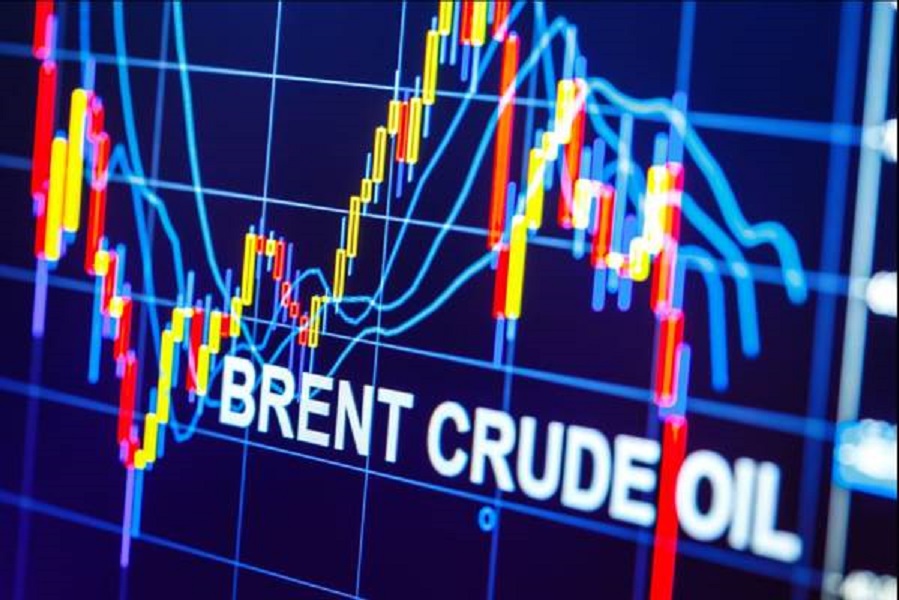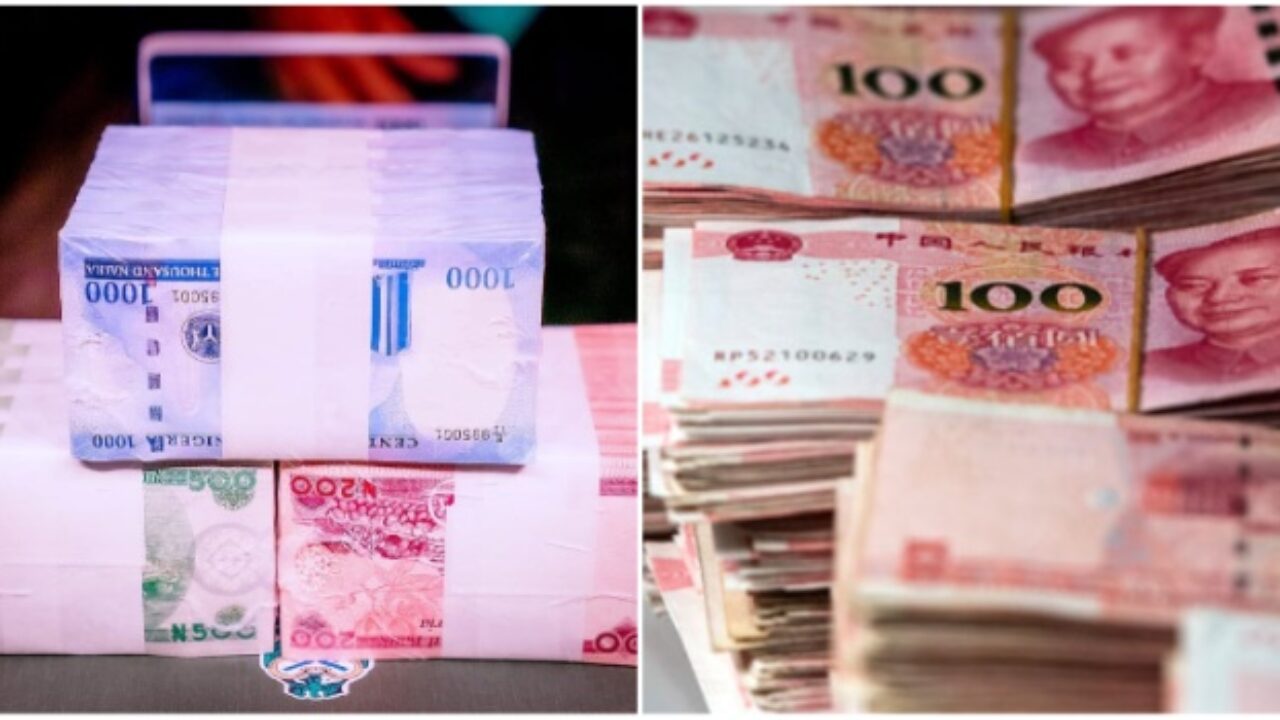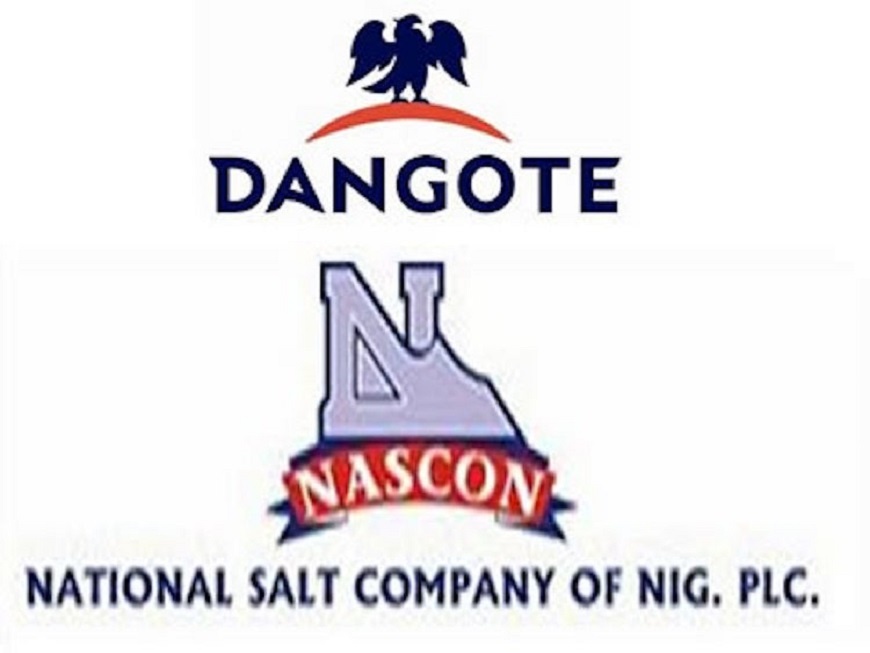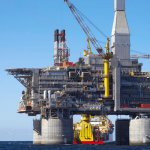Economy
Brent Hits $114 as US Stockpile Drops Amid Tight Supply

By Adedapo Adesanya
Brent crude rose by 43 cents or 0.38 per cent to $114.46 per barrel on Wednesday as the Energy Information Administration (EIA) reported that crude oil inventories in the United States shed one million barrels compared with the preceding week’s draw of 3.4 million barrels.
Also, the West Texas Intermediate (WTI) crude futures appreciated by 57 cents or 0.52 per cent yesterday to $110.90 per barrel as the agency disclosed that at 419.8 million barrels, crude oil inventories are 14 per cent below the five-year average for this time of the year.
Crude oil prices also remained elevated as the demand/supply situation remains unchanged even though worry about recession has served to limit the upside potential of benchmarks.
On the demand front, Shanghai is scheduled to see lockdowns end on June 1 after a gradual easing beginning on May 21.
This is coming after risks of a rebound in infections were controlled as authorities implemented epidemic prevention and control to fully restore normalcy to production and life in the city.
Meanwhile, Beijing stepped up quarantine efforts to end its month-old COVID outbreak.
Global crude supplies continue to tighten as buyers avoid oil from Russia, the world’s second-largest exporter, after the invasion of Ukraine.
European companies, among others, have taken it upon themselves not to patronize Russian crude which has led to a record amount of Urals crude oil sitting in vessels at sea struggling to find buyers.
This is happening as the European Union (EU) hopes to agree on sanctions that would phase out Russian oil imports before the next meeting of the European Council, its president, Mr Charles Michel, said on Wednesday.
Also, the market is high with this weekend’s Memorial Day travel in the US, which is expected to be the busiest in two years, causing fuel demand to rise as more drivers hit the road and shake off coronavirus pandemic restrictions despite high fuel prices.
The de facto leader of the Organisation of the Petroleum Exporting Countries (OPEC), Saudi Arabia, signalled once again it had no plans to boost production further.
Economy
Nigeria in Talks with China to Expand Yuan–Naira Swap Deal to $10bn

By Adedapo Adesanya
The federal government is in advanced talks with China to expand its existing Yuan–Naira currency swap to as much as $10 billion, a move aimed at easing pressure on the US dollar and narrowing the trade imbalance that heavily favours the Asian country.
The director general and Global Liaison for the Nigeria–China Strategic Partnership (NSCP), Mr Joseph Tegbe, said in Abuja that the government was seeking to renew and scale up the current $2.5 billion swap arrangement to allow businesses transact directly in yuan, reducing reliance on the dollar for bilateral trade.
According to him, the existing swap line, though initially underutilised, is being renewed and expanded, with proposals to increase it to $10 billion.
Mr Tegbe said Nigeria was also fast-tracking export protocols to take full advantage of China’s zero-tariff policy for African countries, set to take effect in May 2026.
“Products like hides, skins, cashew, and aquatic products such as crabs and shrimps, which are often exported informally, will now enter China legally under zero duty,” he stated.
The DG highlighted that beyond trade, Nigeria is pursuing equity-based partnerships with Chinese firms. Notable initiatives. These include China Harbour Engineering Company’s $1 billion investment in the Lekki Deep Sea Port and large-scale developmental projects in agriculture, steel, and poultry.
Nigerian businesses to transact directly in Yuan, avoiding the current need to convert Naira to dollars and then to Yuan, which places additional strain on dollar demand.
“We are in discussions with China to establish a truly workable Yuan–Naira swap arrangement. We already have about a $2.5 billion swap line, and although progress slowed toward the end of last year, we are now looking to renew and expand it.
“What this means for the economy is simple: a Nigerian business should be able to pay in naira into his local bank account here and receive Yuan in China directly to do his/her business. Currently, traders convert Naira to Dollars, and then Dollars to Yuan, which increases demand for the US Dollar.
“But someone trading with China does not need Dollars — they need Yuan. If transactions move directly between naira and yuan, it will significantly reduce pressure on the Dollar–Naira exchange rate,” he said.
He noted that for the swap to be effective, Nigeria’s foreign exchange reserves must be at a comfortable level, a goal being addressed by the Central Bank of Nigeria (CBN) as part of broader efforts to stabilise the currency and facilitate smoother bilateral trade.
“Our foreign exchange reserves must also be at a comfortable level for the swap to function effectively. Without sufficient reserves, the arrangement cannot deliver its full benefits. That is why we are strengthening our FX position and renewing the agreement.
“Businesses have told us the current threshold is insufficient, so we are working to increase it to the equivalent of $10 billion,” Mr Tegbe said.
Economy
Spike in Demand for Salt, Seasoning Products Raise NASCON Revenue by 27%

By Aduragbemi Omiyale
One of the leading salt refiners in Nigeria, Nascon Allied Industries Plc, a subsidiary of Dangote Group, has recorded a 27 per cent spike in revenue for the 2025 financial year.
The financial statements of the company disclosed that earnings stood at N152.7 billion compared with the N120.4 billion achieved in 2024, driven by a robust demand for its salt and seasoning products and improved production stability.
This helped the firm to raise its gross profit by 33 per cent to N73.9 billion from N55.5 billion, as the profit after tax went up by 115 per cent to N33.5 billion from N15.6 billion, and the earnings per share grew by 115 per cent at N12.41, inspiring the board to jack up the dividend payout by 200 per cent at N6.00.
“It is a privilege to present the audited results of Nascon Allied Industries Plc for the year ended December 31, 2025,” the Managing Director, Mr Aderemi Saka, said.
“This year’s performance stands as a testament to our collective resilience and strategic discipline in navigating a demanding macroeconomic environment.
“Our commitment to operational excellence delivered the strongest bottom-line performance in our company’s recent history.
“Revenue grew by 27 per cent to N152.7 billion, reinforced by a robust demand for our salt and seasoning products and improved production stability, while gross profit rose by 33 per cent to N73.9 billion.
“Profit After Tax surged by 115 per cent to N33.5 billion, and this exceptional earnings growth translated into a 115 per cent increase in Earnings Per Share, now at N12.41.
“Reflecting this solid performance, the board is pleased to propose a dividend of N6.00 per share, representing a 200 per cent increase,” he added.
Mr Saka attributed the success of last year to “the 72 per cent expansion of our asset base to N135.3 billion, enabled largely by our strategic investment in new Compressed Natural Gas (CNG) trucks.
“This transition serves a dual purpose: protecting our operations from the volatility of diesel prices while significantly reducing our carbon footprint.
“By strengthening our logistics capabilities, we have enhanced operational independence and secured greater supply chain control, deepening the sustainability of our business model.”
“We concluded the year with a strong liquidity position, as cash and cash equivalents rose by 69 per cent to N41.6 billion, supported by operating cash flows of N43.9 billion.
“This financial strength gives us the capacity to continue investing in technology, infrastructure, and operational efficiency initiatives that will reinforce our market leadership,” he further stated.
“As we look ahead, we remain focused on increasing our market presence, strengthening operational resilience, and executing the long-term strategic initiatives that support sustainable growth.
“With a solid balance sheet and a committed workforce, we are well-positioned to continue delivering value to our shareholders and all stakeholders.
“I extend my sincere appreciation to our shareholders, customers, and employees for their unwavering support. As we move forward, I am optimistic about carrying this momentum into 2026 and beyond,” the MD disclosed.
Economy
Tinubu Picks Taiwo Oyedele as Minister of State for Finance

By Adedapo Adesanya
President Tinubu has nominated Mr Taiwo Oyedele as the new Minister of State for Finance, taking over the position from Mrs Doris Uzoka-Anite.
In a statement on Tuesday, it was announced that Mrs Uzoka-Anite will now move to the Ministry of Budget and National Planning as the Minister of State, marking her third portfolio in the administration, after she was earlier stripped of the role of Minister of Trade, Industry, and Investment and replaced by Mrs Jumoke Oduwole.
President Tinubu conveyed Mr Oyedele’s nomination to the Senate for confirmation in a letter to the Senate President, Mr Godswill Akpabio, on Tuesday.
Until his nomination, Mr Oyedele, from Ikaram, Akoko, Ondo State, served as the Chairman of the Presidential Committee on Fiscal Policy and Tax Reforms, which overhauled Nigeria’s tax system.
The 50-year-old PricewaterhouseCoopers (PwC) alumnus is an economist, accountant, and public policy expert.
He attended Yaba College of Technology, where he obtained a Higher National Diploma (HND) in Accountancy and Finance. He also attended Oxford Brookes University, earning a BSc in Applied Accounting.
He has completed executive education programs at the London School of Economics, Yale University, the Gordon Institute of Business Science, and the Harvard Kennedy School.
Mr Oyedele spent 22 years of his working career at PwC, joining in 2001 and rising to become Fiscal Policy Partner and Africa Tax Leader.
He is also a professor at Babcock University in Ogun State and a visiting scholar at the Lagos Business School (LBS).
-

 Feature/OPED6 years ago
Feature/OPED6 years agoDavos was Different this year
-
Travel/Tourism10 years ago
Lagos Seals Western Lodge Hotel In Ikorodu
-

 Showbiz3 years ago
Showbiz3 years agoEstranged Lover Releases Videos of Empress Njamah Bathing
-

 Banking8 years ago
Banking8 years agoSort Codes of GTBank Branches in Nigeria
-

 Economy3 years ago
Economy3 years agoSubsidy Removal: CNG at N130 Per Litre Cheaper Than Petrol—IPMAN
-

 Banking3 years ago
Banking3 years agoSort Codes of UBA Branches in Nigeria
-

 Banking3 years ago
Banking3 years agoFirst Bank Announces Planned Downtime
-

 Sports3 years ago
Sports3 years agoHighest Paid Nigerian Footballer – How Much Do Nigerian Footballers Earn



















